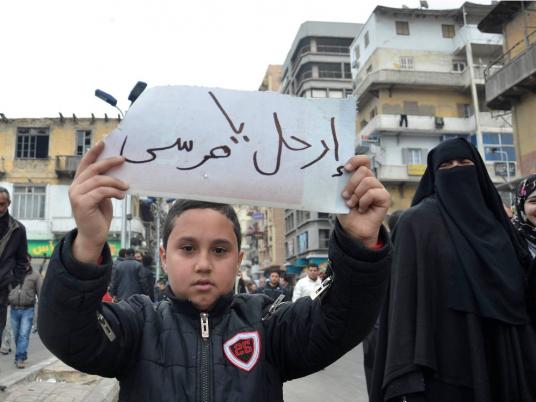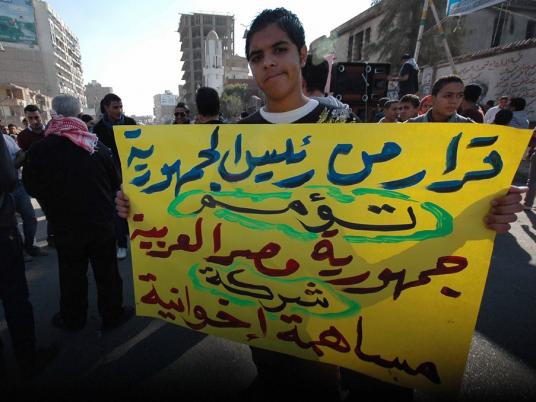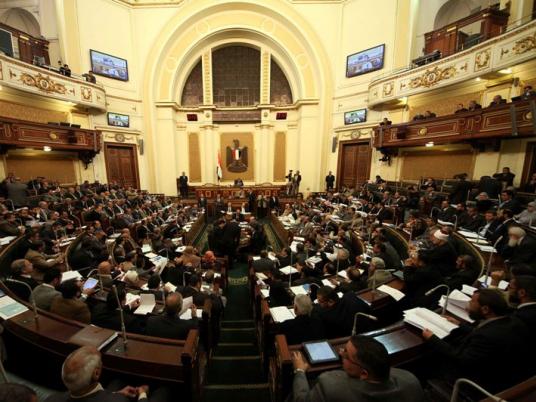State-run papers focused on President Hosni Mubarak’s visit to the southern governorate of Sohag, while independent papers intensively covered the Court of Cassation’s proceedings on the case of business tycoon Hisham Taalat Mustafa.
State-owned flagship Al-Ahram led with Mubarak’s visit to Sohag where he inaugurated key development projects which included an international highway and two hospitals to serve the people of Upper Egypt. Mubarak during his visit, which is widely believed it is a part of his efforts to garner support for the next presidential elections, said the improvement of infrastructure in Upper Egypt was pivotal not only to raising the living standard of citizens by creating more job opportunities, but also to investment promotion.
Government-controlled Al-Gomhuria focused instead on Mubarak’s statements especially reaffirming Egypt’s traditional policy of opposition to the establishment of any foreign military base in the country whatever the justifications might be.
It also highlighted Mubarak’s resolve to pursue a peaceful solution to the Palestinian-Israeli conflict. “Israel capitalizes on the stalemate of the peace talks with the Palestinians to accelerate the construction of Jewish settlements on the occupied Palestinian territories,” the Egyptian President said.
Palestinians are also to be blamed according to Mubarak. He denounced their continual division between the Hamas-run Gaza Strip and the Fatah-controlled West Bank, rendering the Palestinian cause as “the question of missed chances.”
Independent papers, on the other hand, lead with extensive coverage of the Court of Cassation’s decision to rule on an appeal filed by Mustafa, guilty of instigating the murder of a Lebanese singer in Dubai, on March 4.
Ad-Doustour emphasized the heavy security presence which cordoned off the court’s building in downtown Cairo since Thursday’s dawn, preventing access to the courtroom except for those who acquired special permits. It also quoted the state’s attorney as denying that they had requested the annulment of the previous ruling as some media reports suggested earlier.
Government-funded daily Al-Akhbar, on the other hand, ran with an opposing account of the attorney’s defense, showing that his case actually had elements of supporting the appeal, thus allowing for a retrial of Mustafa, a leading construction businessman, and Mohssen Al Sukkari, an ex-policeman.
Last June, a criminal court in Cairo sentenced Hisham and Al Sukkari to death after convicting them of involvement in the slaying of Lebanese singer Suzan Tamim in her luxury apartment in Dubai in the summer of 2008.
Independent daily el-Shorouk quoted Atef el-Minawy, one of Sukkari’s lawyers, as saying that Dubai Police had fabricated evidence to incriminate his defendant. “Dubai rulers know who the actual murder is,” he shouted, insisting that Sukkari is “innocent from her blood.” “Dubai police had made up the entire case against Sukkari by claiming that they found drops of his blood on her corpse, while Egypt’s forensic doctors did not find any proof of that,” Minawy stressed.
Hisham, an ex-MP, reportedly had a failed love affair with Tamim, and was found guilty of inciting Sukkari to kill her in return for two million dollars.
Lawyers for the two convicts say that the ruling passed by the criminal court was flawed for an alleged lack of substantial evidence. If the court turned down the appeal, the death verdict would be irreversible.




